Liposomal delivery is an innovative way to increase the bioavailability of apigenin by encapsulating it in a phospholipid bilayer, which allows it to more effectively bypass the gastrointestinal tract and enter the bloodstream.
Apigenin: (A natural flavonoid)
- Enhances Chemotherapy: Boosts efficacy of chemotherapy drugs.
- Reduces Overexpressed Genes: Downregulates genes linked to cancer.
- Induces Apoptosis: Promotes cancer cell death.
- Reduces Side Effects: Minimizes chemotherapy side effects.
- Inhibits Cancer Cell Growth: Slows down cancer cell proliferation.
- Induces Autophagy: Encourages breakdown of cancerous cells.
- Modulates Cell Cycle: Disrupts cancer cell division.
- Decreases Cell Motility: Prevents cancer spread.
- Overcomes Drug Resistance: Helps counteract resistance to drugs.
- Protects Healthy Cells: Targets cancer cells, spares normal ones.
- Selective Targeting: Specifically attacks cancer cells.
- Promising Anti-Cancer Agent: Potential for cancer treatment.
Resveratrol:
- Anti-Inflammatory: Apigenin has properties that reduce inflammation in the body.
- Inhibits Cancer Growth Pathways: It interferes with various pathways involved in the growth and progression of cancer cells.
Senolytics:
- Clears Senescent Cells: Apigenin helps eliminate senescent cells, which are linked to aging and chronic diseases.
- Alleviates Age-Related Pathologies: It may reduce the impact of diseases associated with aging.
- Enhances Chemotherapy: Boosts the effectiveness of chemotherapy treatments.
- Prevents Cancer Recurrence: It may help prevent the return of cancer after treatment.
- Improves Health: Contributes to overall health and well-being.
- Supports Conventional Therapies: Can be used alongside standard medical treatments to enhance their effectiveness.
Fisetin:
- Natural Flavonoid: Apigenin is a naturally occurring compound found in various plants.
- Suppresses Cell Growth: It inhibits the proliferation of cells, particularly cancer cells.
- Induces Apoptosis: Promotes programmed cell death in cancer cells.
- Reduces Angiogenesis: Decreases the formation of new blood vessels that supply tumors.
- Inhibits Cell Migration: Prevents cancer cells from spreading to other parts of the body.
- Enhances the Effect of Chemotherapy: Increases the effectiveness of chemotherapy drugs.
- Modulates Pathways: Influences various biological pathways involved in cancer and other diseases.
Quercetin:
- Inhibits Tumor Proliferation: Apigenin prevents the rapid growth and multiplication of tumor cells.
- Prevents Invasion and Metastasis: It helps stop cancer cells from invading surrounding tissues and spreading to other parts of the body.
- Anti-Cancer Mechanism Supported by Studies: Research supports apigenin’s role in combating cancer through various mechanisms.
Theaflavins:
- Anti-Cancer Properties: Apigenin has multiple mechanisms that contribute to its cancer-fighting effects.
- Inhibit Cancer: It helps to suppress and control the growth of cancer cells.

Suggestions for use :
1 to 3 Tablets in a day or
as directed by veterinarian
Suggested in :
- All types of cancer.
- Metastasis.
- Cancer cell proliferation and growth.
- Tumors.
- Compromised immune health.
- Inflammation.
- Increased senescent cells count.
Packing:
1×10 Tablets


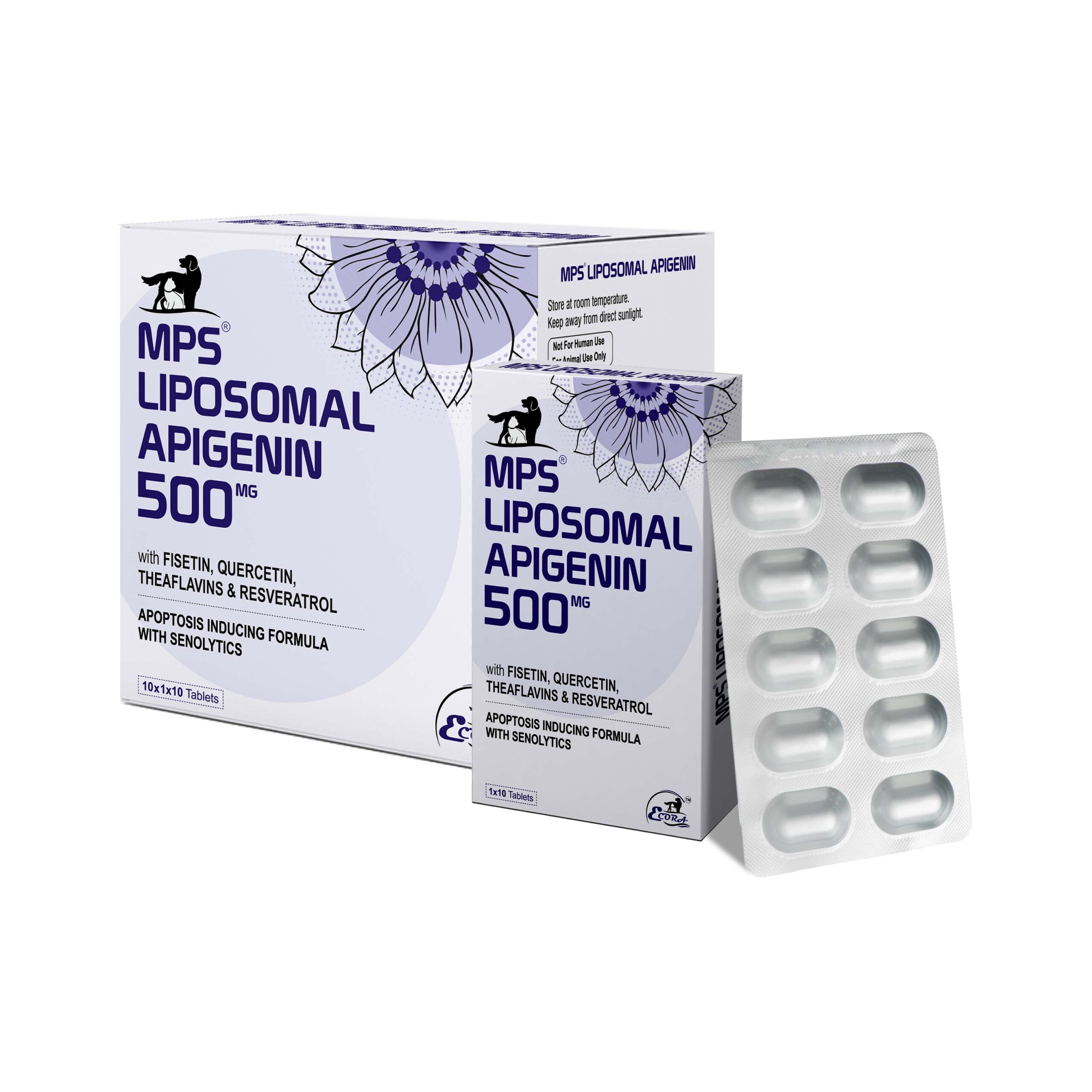

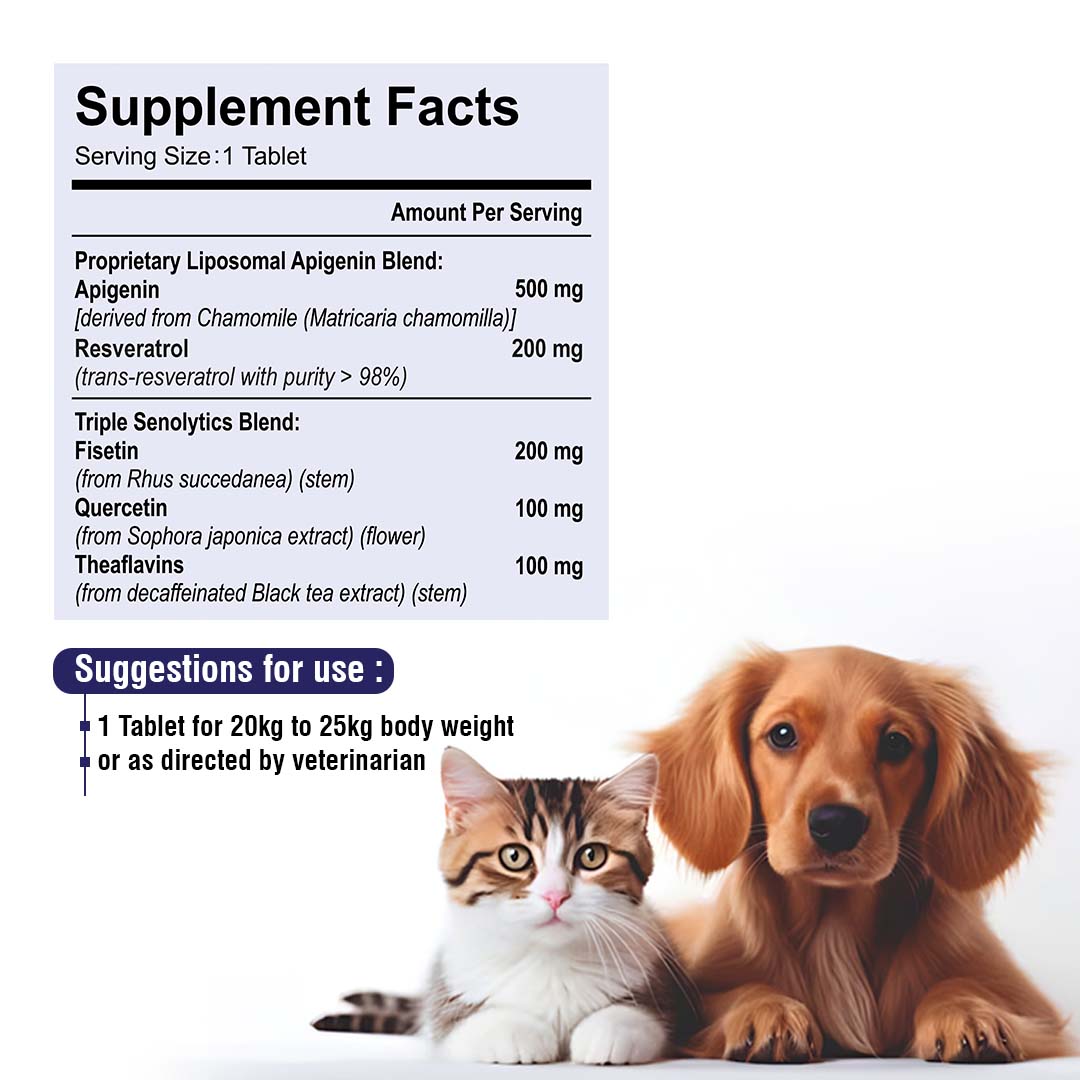
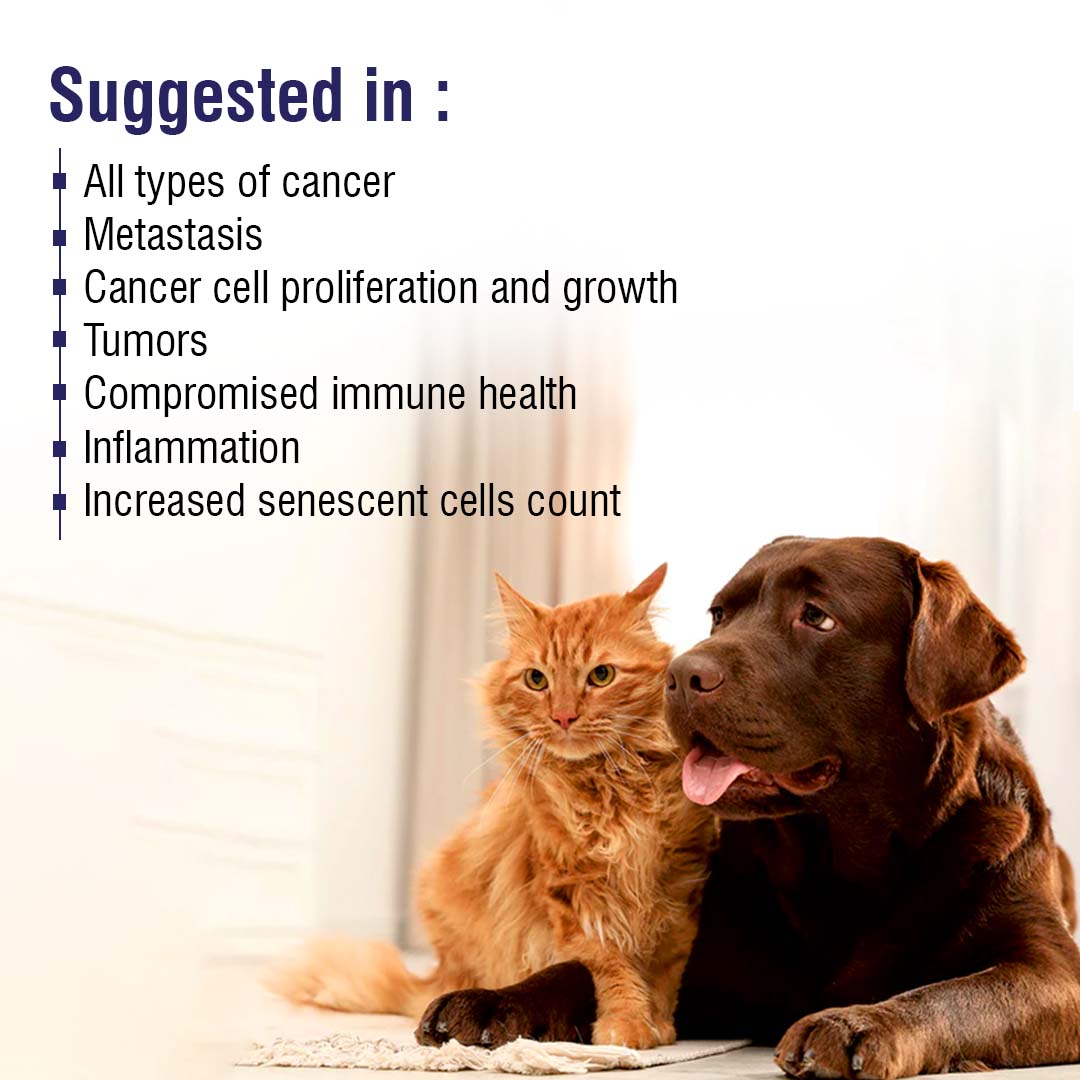

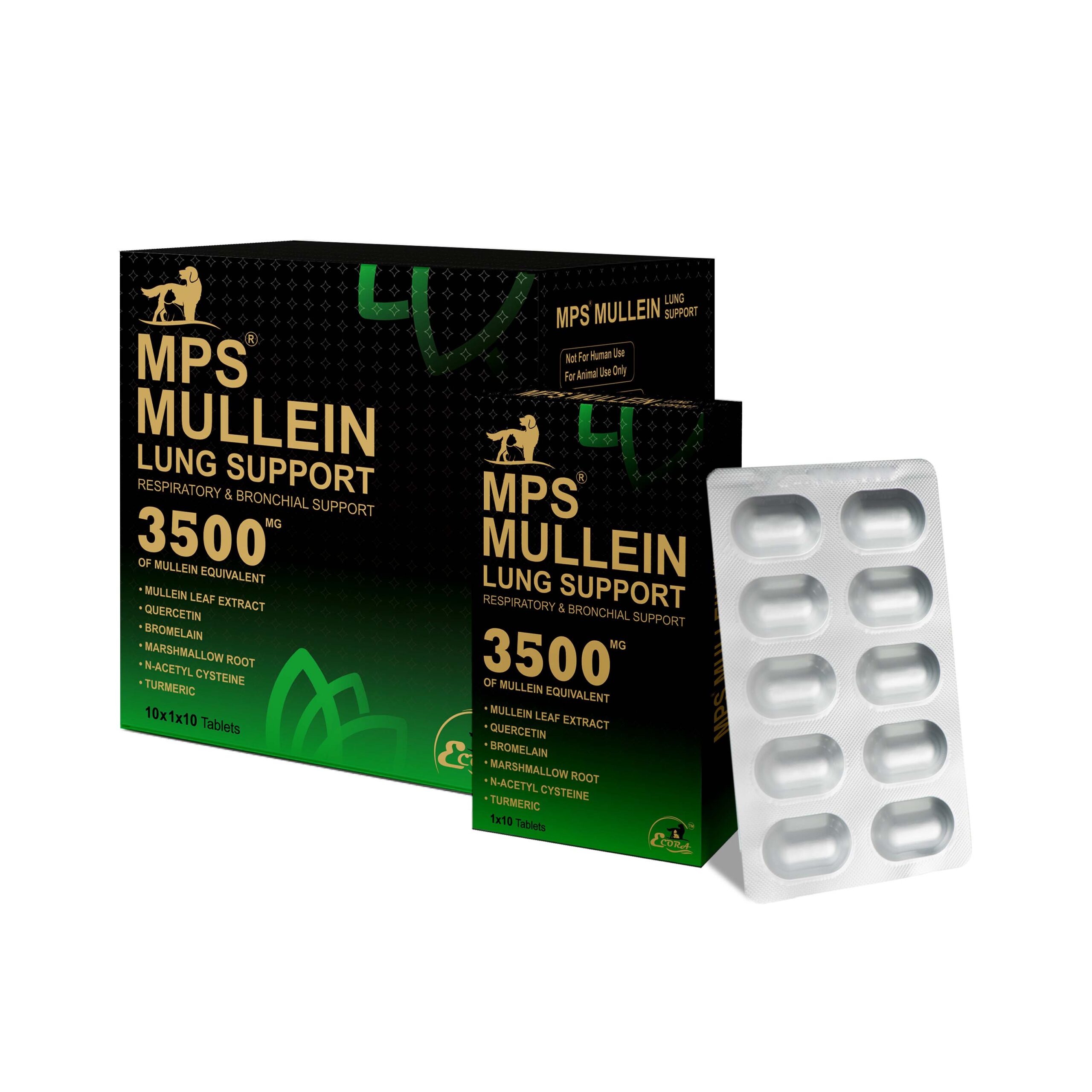
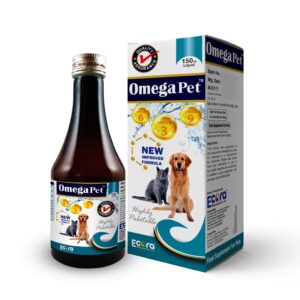
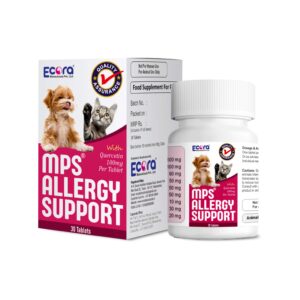
Reviews
There are no reviews yet.